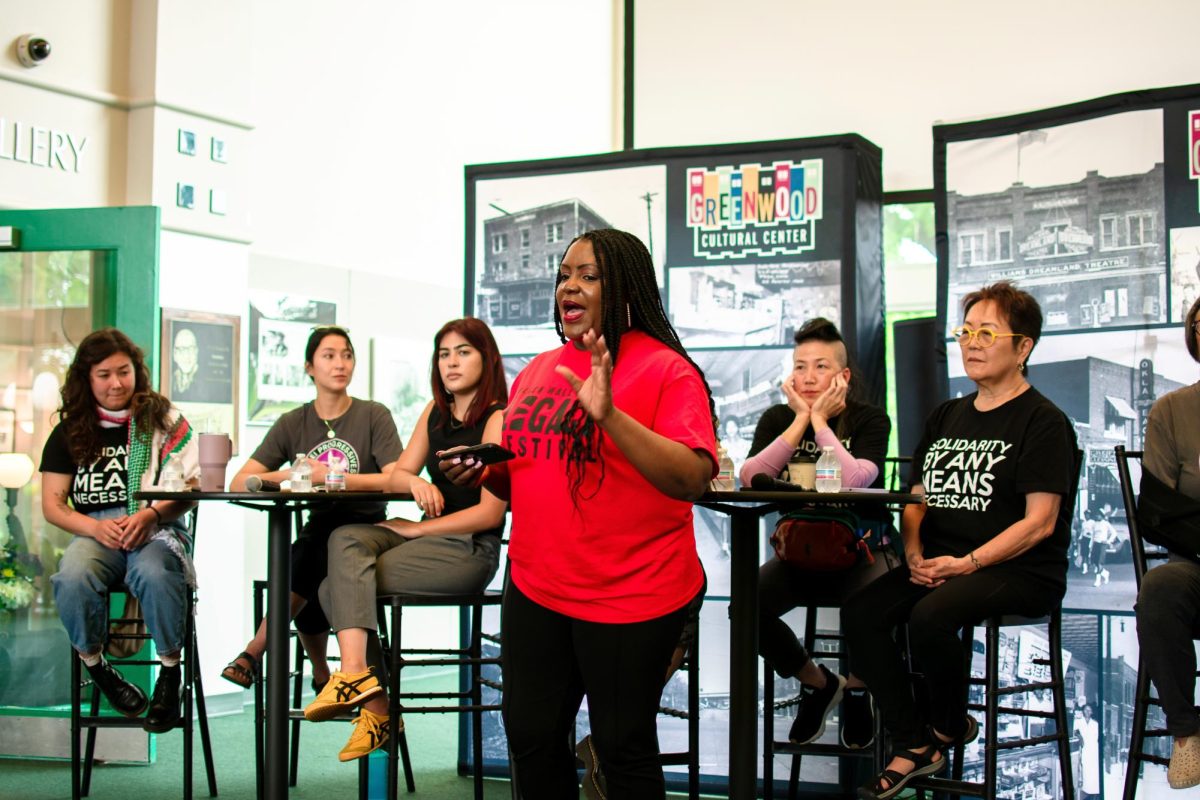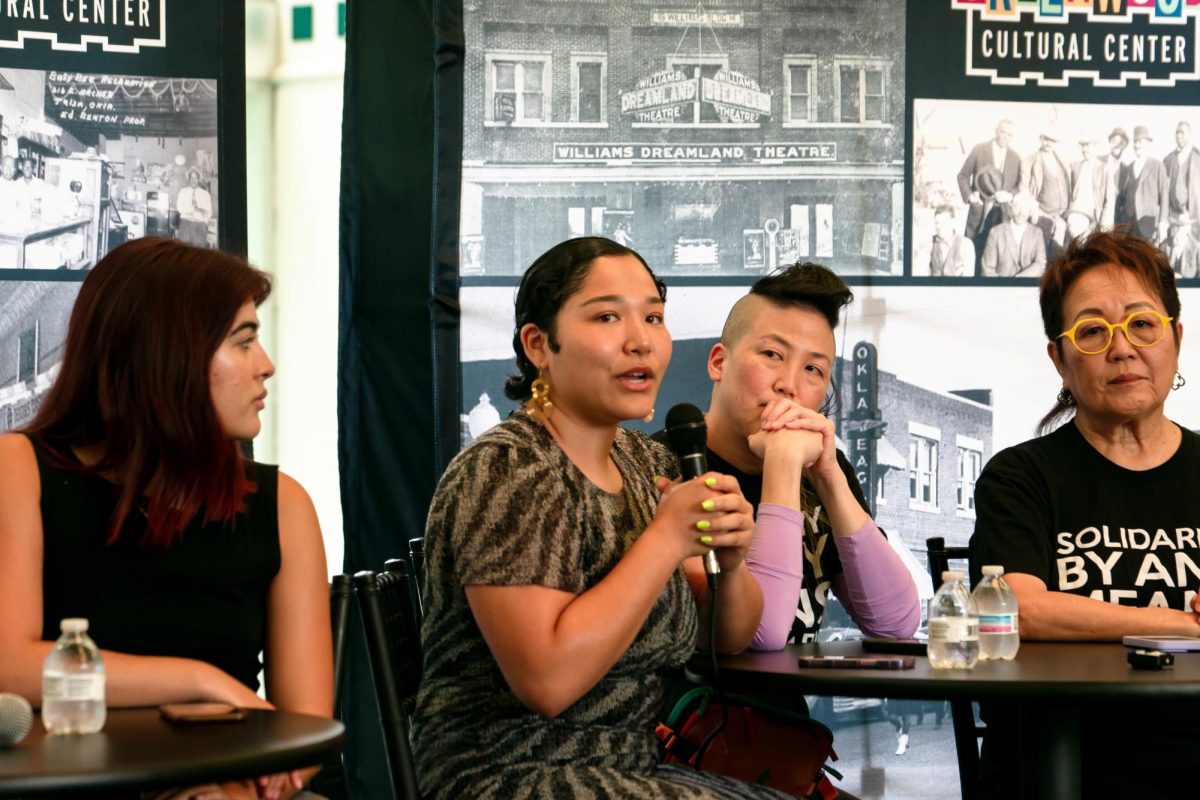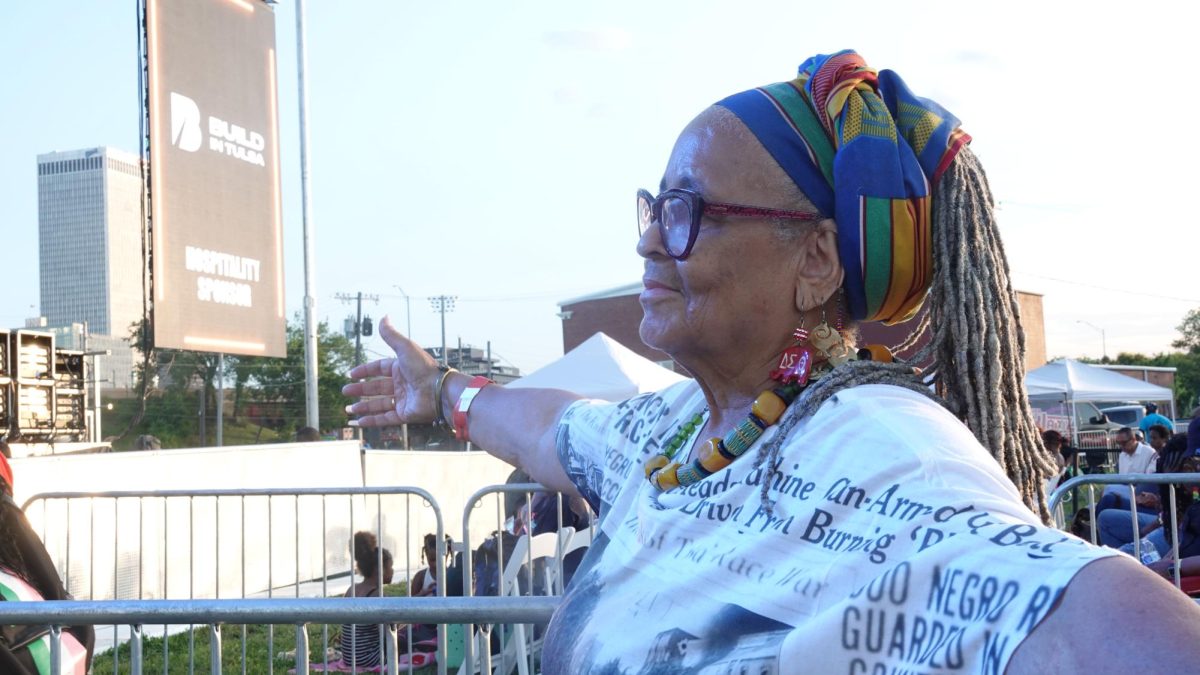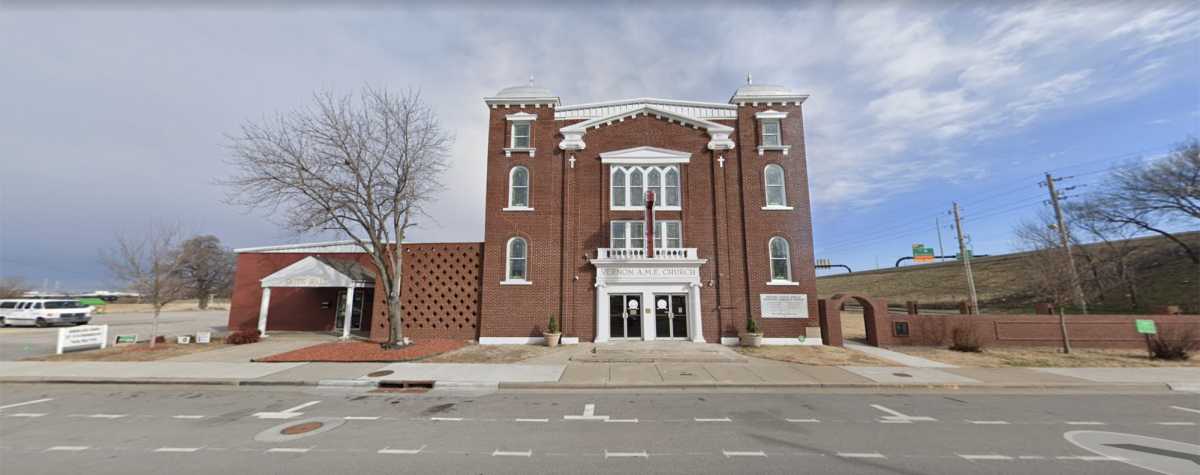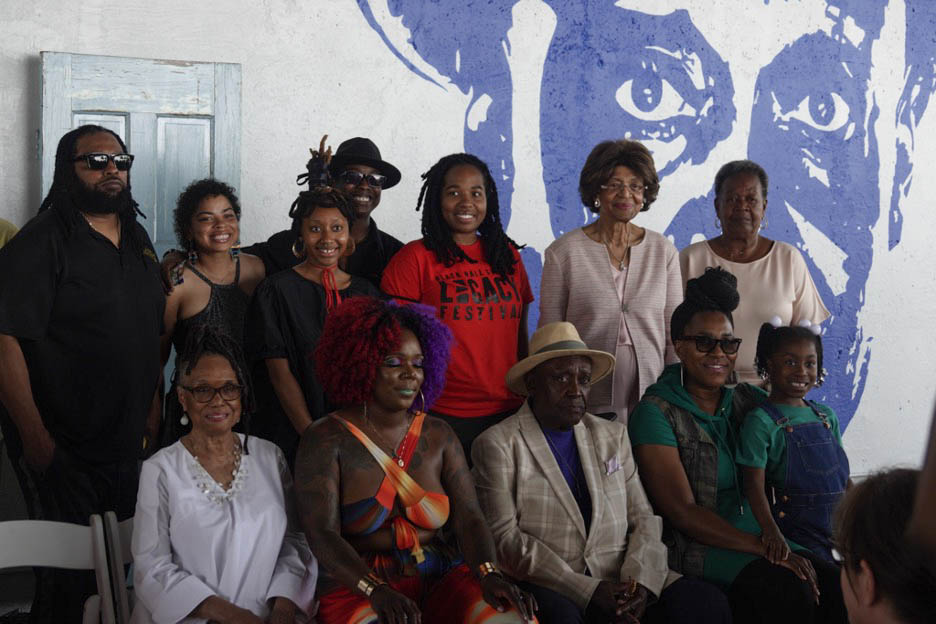TULSA, OKLAHOMA – Learning history and connecting with legacy are different concepts, according to at least one panelist at the fourth annual Black Wall Street Legacy Festival in Tulsa’s historic Greenwood district Saturday.
The fight for reparations for Japanese Americans was occurring at the same time as the anti-apartheid movement and the fight for Native American land, according to Jan Tokumaru. Tokumaru and other members of the National Coalition for Redress/Reparations Committee, an organization that merges the political goals of redress for both Black and Japanese Americans harmed by institutional racism, formed the first panel of speakers.
“All these things came into our experience of movement building because we knew that we had to learn within our community and we had to learn about other communities struggling at the same time,” Tokumaru said.
The fourth annual Black Wall Street Legacy Festival, a commemoration of the 103rd anniversary of the Tulsa Race Massacre, featured two panels during the Black Wall Street Legacy Summit on Saturday focused on the legacy of reparations in the U.S. and how the fight has progressed through the years.
The Nikkei Progressives panel, headlined by eight members of the NCRR, began their discussion with the legacy of Japanese Americans and their experience of ancestors being incarcerated inside concentration camps during and after World War II.
Kathy Masaoka, who had never heard about the Japanese-American concentration camps as a child, believes that the way her parents acted caused her to keep her head down in society and to not speak up.
“I think a lot of us inside realized that we were alienated from ourselves,” Masaoka said. “We need to know our history, because if we don’t know our history, we don’t know who we are.”
Emily Akpan, another panelist and NCRR member, did not learn about the Japanese American redress movement or that her family received reparations until she was in her 20s. Coming into Tulsa, Akpan noted how she could feel the history of racial violence and pain, but also a sense of how much hope permeates the area.
“Now that I’m learning about the redress movement, I’m also very cognizant that the Japanese Americans being incarcerated by the U.S. government was only possible because of the legacies of violence and oppression that black people have faced in this country for centuries,” Akpan said.
The second panel kept the same theme of reparations with a transition to a discussion of Marcus Anthony Hunter’s book “Radical Reparations,” hosted by Onikah Asamoa-Caesar, owner and founder of Fulton Street Books & Coffee.
“The definition of reparations is, for me, important to understand [that] the root of the word is repair,” Hunter said. “Reparations are about a state of repair.”
Hunter shared his ideas that the goal of reparation is not something that can be done alone. He acknowledged the prior panelists and their fight for reparations for not only their community but for his as well.
“I can relate to a human condition, a story about humanity, which is why I love what our Japanese American brothers and sisters have been doing,” Hunter said.
Hunter discussed how the standard definition of reparations is about returning the victim to their original status, which is not inclusive of enslavement.
“This is about the healing component, the fundamental belief in the power of releasing,” Hunter said. “A lot of times people are just one conversation away from a new consciousness.”
Tiffany Crutcher, founder of the Terence Crutcher Foundation, began the event by acknowledging that the attendees were standing on the sacred ground of the 1921 massacre.
Crutcher, herself a descendant from survivors of the massacre, introduced the mission of the Black Wall Street Legacy Festival is to spread truth and share with young people the real history of Black Wall Street and Greenwood.
“Take the information you’re learning, take it back to your respective communities,” Crutcher said. “It starts with us sitting at the elders’ feet.”
Return to the Voices of Resilience homepage.
Gaylord News is a reporting project of the University of Oklahoma Gaylord College of Journalism and Mass Communication. For more stories by Gaylord News go to GaylordNews.net.

